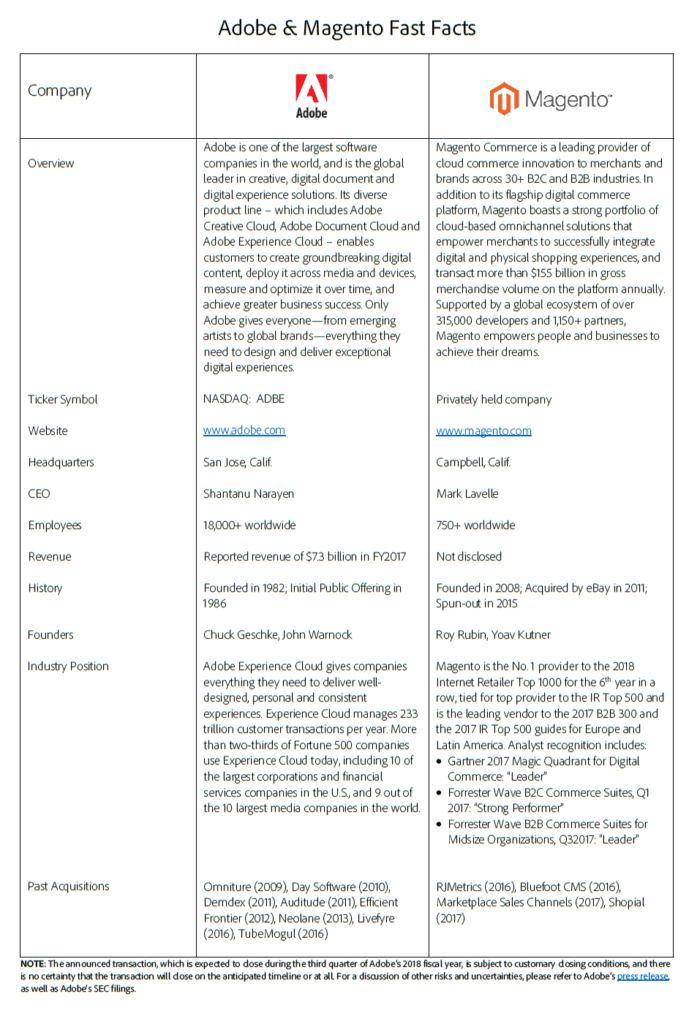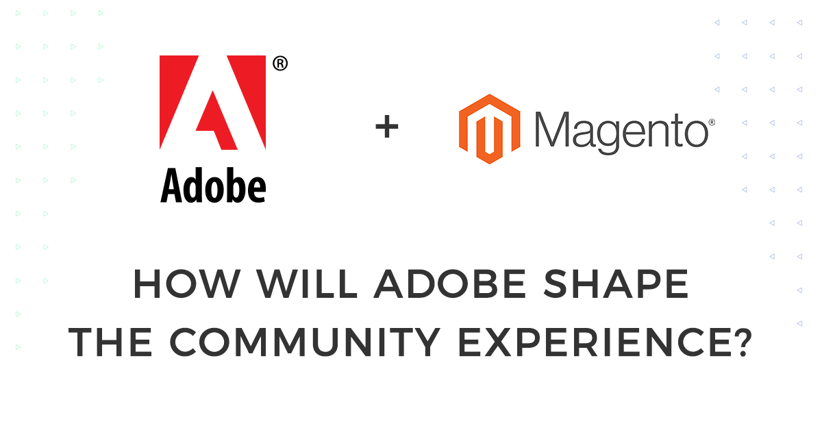This morning surprised merchants and the Magento community with rather unexpected news. Adobe has announced the acquisition of a leading commerce platform – Magento. What should the Magento community expect now?
We knew that Adobe was looking for a commerce platform to buy. That’s at least since they lost DemandWare to Salesforce in 2016. But the recent news and announcements from Magento Imagine 2018 didn’t give us any information about such a move. Perhaps the Magento board was still struggling with this.
In general, it is great news for Adobe clients, good news for Enterprise Magento clients, and quite neutral for Community version users. Let’s take a closer look.
What does it mean for clients and businesses?
Joining the Magento Commerce Cloud to the Adobe portfolio will complement the Adobe Experience Cloud by adding commerce solutions that work for B2B and B2C. It’s like adding the last missing piece of the puzzle. With that, customers and businesses can expect that every interaction in Adobe will be shoppable on the web, mobile, social, in-product or in-store.
Adobe claims this process will go seamlessly, but observing similar integrations on the market (just look at Hybris and SAP) it might just take 2 – 3 years. The question is how different the standard eCommerce stack will look by that time? With the micro-services approach (just look at headless solutions and progressive web apps front-ends) eCommerce might grow independently from the vendors…
As for Magento clients, by joining the Adobe network, they should expect:
- Experience-driven commerce approach
- Cloud, cloud, cloud … and subscriptions
- Changes in pricing probably – even bigger shift to the subscription model
- Much bigger focus on Commerce (Enterprise) version
- Better support for Adobe’s global operational scale
- A better approach to Enterprise level clients
What does it mean for the Magento community?
I don’t know what this means for the community itself and I don’t think this is super-good news. Magento Commerce is a leading provider of commerce innovations. This is supported by enormous community engagement of at least 315,000 developers and 1,150 partners. In fact, the community has built over 24% of the code but is also somehow slowing Magento down if you think about Cloud adoption.
Now the Cloud is the one and only priority. How will Adobe solve this problem? Without its community, Magento will be lost. So far, Adobe has emphasized growing the community. Only time will tell what will happen.
“Adobe and Magento share a vision for the future of digital experiences that brings together Adobe’s strength in content and data with Magento’s open commerce innovation,” said Mark Lavelle, CEO, Magento. “We’re excited to join Adobe and believe this will be a great opportunity for our customers, partners and developer community.”
Magento community is in shock
The Adobe acquired Magento for $1.68 billion. Although the transaction is expected to close during the third quarter of Adobe’s 2018 fiscal year, for many people, this announcement was a SHOCK. Now it’s time to observe how Adobe will lead the processes and turn Magento into a core product that can be monetized.
The big question remains: will Adobe close Magento to its community or keep it open?
 Adobe & Magento Fast Facts (source: Adobe Press Release)
Adobe & Magento Fast Facts (source: Adobe Press Release)
Published May 22, 2018













